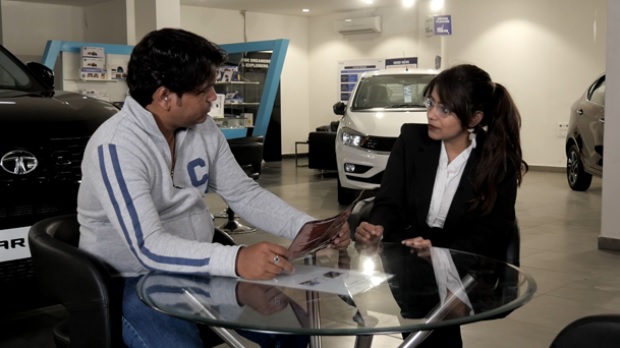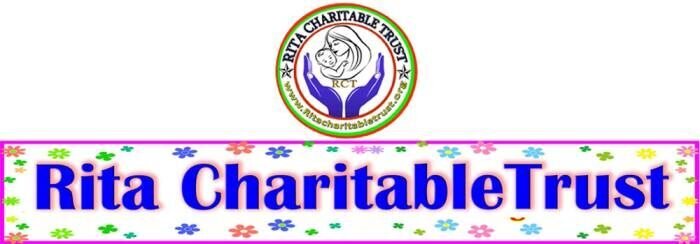Free Showroom Hostess Or Host Course (4Months)
Showroom Hostess Or Host Course:
Brief Job Description
A Showroom Hostess / Host is responsible for handling the front office work. The individual attends to the customers and coordinates response to their queries.
Personal Attributes
An individual on this job must have good communication and interpersonal skills along with a pleasing personality to handle the front office desk attending to all sorts of enquiries from the customers. The individual must be patient and good listening ability and highly customer centric attitude is highly desirable to understand various requirements and tackle the irate customers.


Plan and organise work to meet expected outcomes:
Scope
This unit/task covers the following:
work requirements including various activities, deliverables or work output required in the given time, maintain set quality standards
appropriate use of resources (both material / equipment’s and manpower
Elements and Performance Criteria
Work requirements including various activities within the given time and set quality standards
To be competent, the user/individual on the job must be able to:
PC1. keep immediate work area clean and tidy
PC2. treat confidential information as per the organisations guidelines
PC3. work in line with organisations policies and procedures
PC4. work within the limits of job role
PC5. obtain guidance from appropriate people, where necessary
PC6. ensure work meets the agreed requirements
Appropriate use of resources
To be competent, the user/individual on the job must be able to:
PC7. establish and agree on work requirements with appropriate people
PC8. manage time, materials and cost effectively
PC9. use resources in a responsible manner
Knowledge and Understanding (KU)
The individual on the job needs to know and understand:
KU1. the organisations policies, procedures and priorities for area of work, role and responsibilities in carrying out that work
KU2. the limits of responsibilities and when to involve others
KU3. specific work requirements and who these must be agreed with
KU4. the importance of having a tidy work area and how to do this
KU5. how to prioritize workload according to urgency and importance and the benefits of this
KU6. the organisations policies and procedures for dealing with confidential information and the importance of complying with these
KU7. the purpose of keeping others updated with the progress of work
KU8. who to obtain guidance from and the typical circumstances when this may be required
KU9. the purpose and value of being flexible and adapting work plans
KU10. how to complete tasks accurately by following standard procedures
KU11. technical resources needed for work and how to obtain and use these
Generic Skills (GS)
User/individual on the job needs to know how to:
GS1. write in at least one language
GS2. read instructions, guidelines/procedures
GS3. ask for clarification and advice from appropriate persons
GS4. communicate orally with colleagues
GS5. make a decision on a suitable course of action appropriate for accurately completing the task within resources
GS6. agree objectives and work requirements
GS7. plan and organise work to achieve targets and deadlines
GS8. deliver consistent and reliable service to customers
GS9. check own work and ensure it meets customer requirements
GS10. anomalies to the concerned persons
GS11. analyse problems and identify work-arounds taking help from
GS12. apply own judgement to identify solutions in different situations

Work effectively in a team:
Elements and Performance Criteria
Effective communication
To be competent, the user/individual on the job must be able to:
PC1. maintain clear communication with colleagues
PC2. work with colleagues
PC3. pass on information to colleagues in line with organisational requirements
PC4.. work in ways that show respect for colleagues
PC5. carry out commitments made to colleagues
PC6. let colleagues know in good time if cannot carry out commitments, explaining the reasons
PC7. identify problems in working with colleagues and take the initiative to solve these problems
PC8. follow the organisations policies and procedures for working with colleagues
PC9. ability to share resources with other members as per priority of tasks
Knowledge and Understanding (KU)
The individual on the job needs to know and understand:
KU1. the organisations policies and procedures for working withcolleagues, role and responsibilities in relation to this
KU2. the importance of effective communication and establishing goodworking relationships with colleagues
KU3. different methods of communication and the circumstances inwhich it is appropriate to use these
KU4. benefits of developing productive working relationships withcolleagues
KU5. the importance of creating an environment of trust and mutualrespect
KU6. whether not meeting commitments, will have implications onindividuals and the organisation
KU7. different types of information that colleagues might need and theimportance of providing this information when it is required
KU8. the importance of problems, from colleagues perspective andhow to provide support, where necessary, to resolve these
Generic Skills (GS)
User/individual on the job needs to know how to:
GS1. complete well written work with attention to detail
GS2. read instructions, guidelines/procedures
GS3. listen effectively and orally communicate information
GS4. make decisions on a suitable course of action or response
GS5. plan and organise work to achieve targets and deadlines
GS6. check that the work meets customer requirements
GS7. deliver consistent and reliable service to customers
GS8. apply problem solving approaches in different situations
GS9. apply balanced judgements to different situations
GS10. apply good attention to detail
GS11. check that the work is complete and free from errors
GS12. get work checked by peers
GS13. work effectively in a team environment

Maintain a healthy,safe and secure working environment:
Scope
This unit/task covers the following:
Resources (both material & manpower) needed to maintain a safe working environment as per the prevalent norms & government policies including emergency procedures for Illness, accidents, fires or any other reason which may involve evacuation of the premises
Elements and Performance Criteria
Resources needed to maintain a safe, secure working environment
To be competent, the user/individual on the job must be able to:
PC1. comply with organisations current health,safety and security policies and procedures
PC2. report any identified breaches in health,safety, and security policies and procedures to the designated person
PC3.. Coordinate with other resources at the workplace to achieve the healthy, safe and secure environment for all incorporating all government norms esp. for emergency situations like fires,earthquakes etc.
PC4. identify and correct any hazards like illness, accidents, fires or any other natural calamity safely and within the limits of individuals authority
PC5. report any hazards outside the individuals authority to the relevant person in line with organisational procedures and warn other people who may be affected
PC6. follow organisations emergency procedures for accidents, fires or any other natural calamity
PC7. identify and recommend opportunities for improving health,safety, and security to the designated person
PC8. complete all health and safety records are updates and procedures well defined
Knowledge and Understanding (KU)
The individual on the job needs to know and understand:
KU1. legislative requirements and organisations procedures for health, safety and security and individuals role and responsibilities in relation to this
KU2. what is meant by a hazard, including the different types of health and safety hazards that can be found in the workplace
KU3. how and when to report hazards
KU4. the limits of responsibility for dealing with hazards
KU5. the organisations emergency procedures for different emergency situations and the importance of following these
KU6. the importance of maintaining high standards of health, safety and security
KU7. implications that any non-compliance with health, safety and security may have on individuals and the organisation
KU8. different types of breaches in health, safety and security and how and when to report these
KU9. evacuation procedures for workers and visitors
KU10. how to summon medical assistance and the emergency services,where necessary
KU11. how to use the health, safety and accident reporting procedures and the importance of these
Generic Skills (GS)
User/individual on the job needs to know how to:
GS1. complete accurate, well written work with attention to detail
GS2. read instructions, guidelines/procedures/rules
GS3. listen and orally communicate information
GS4. make decisions on a suitable course of action or response
GS5. plan and organise work to achieve targets and deadlines
GS6. build and maintain positive and effective relationships withcolleagues and customers
GS7. apply problem solving approaches in different situations
GS8. analyse data and activities
GS9. apply balanced judgements to different situations
GS10. apply good attention to detail
GS11. check that the work is complete and free from errors
GS12. get work checked by peers
GS13. work effectively in a team environment

Carry out activities for hosting customers in an automobile showroom:
Scope
This unit/task covers the following: establish effective rapport with customers host the customer in a dealership
understand the customer query and respond appropriately to provide any additional information on the product or on any other sales/ service requirements
Elements and Performance Criteria
Host the customer and provide appropriate sales / service information
To be competent, the user/individual on the job must be able to:
PC1.. greet, escort, seat the customers and offer refreshments (tea/ coffee)
PC2.. enquire and understand customer queries related to vehicle type, model, specifications
PC3.. hand out vehicle brochure and specification cards to customers
PC4.. coordinate with other colleagues to ensure satisfactory response to customers queries
PC5.. assist the customer in filling the form related to the basic information, contact details to obtain basic demographic information about each customer, using a computer system, a log sheet, or other method established by the dealership
PC6.. notify the appropriate sales executive that a customer is waiting, or introduce the customer to sales executive thereby transferring the showroom sales lead to sales executive
PC7.. provide basic information related to accessories/ value added or special services and transfer the lead to accessory/ vas sales executive for detailed discussions
PC8.. provide information when requested and promote organisations services, facilities
PC9.. escort or remain in continuous contact while the customer stays in the frontal area of the showroom
PC10.. wish the customer before he leaves the showroom and enquire if his visit was satisfactory
PC11.. take a feedback from the customer at the time of his leaving on whether his visit was satisfactory and all his queries were adequately addressed or not
PC12.. coordinate with sales colleagues to ensure that all pending responses promised to the customer are responded to in a timely and satisfactory manner
PC13.. coordinate with support staff in maintaining show room in presentable condition (including the models on display are cleaned, brochures are available etc.)
PC14.. promote maintaining of harmonious relations in the show room
PC15.. attend and participate in daily briefings, meetings regarding the overall process of customer handling as prescribed by the oem
PC16.. participate in training sessions
Knowledge and Understanding (KU)
The individual on the job needs to know and understand:
KU1. standard operating procedures within ones own organisation
KU2. standard operating procedures for customer query reporting along with their resolution mechanism through the sales team in the organisation
KU3. customer relationship management (crm) related framework provided by the organisation
KU4. documentation requirements for each procedure carried out as part of roles and responsibilities as per the organizational guidelines
KU5. organisational and professional code of ethics and standards of practice
KU6. safety and health policies and regulations for the workplace including automotive showroom in general
KU7. the basic customer and personal service principles and processes for providing customer and personal services
KU8. the technical specifications of various oem vehicles and the different variant/ model used along with those of the competitor auto component manufacturer
KU9. the vehicle features/ specifications and colours of the newly launched vehicles/ variants along with basic details of parts and accessories available
KU10. how to handle and resolve basic customer queries
KU11. software or format such as ms word, excel, powerpoint and management information system (mis)
KU12. how to capture customer voice/ feedback on the services provided by the dealership
KU13. when to contact the sales executive/ sales team lead depending on customer requirement
Generic Skills (GS)
User/individual on the job needs to know how to:
GS1. record and document the basic details of customer visiting the showroom
GS2. capture the profile of the customer visiting the showroom (including demographics, preferences which would help in proper follow-up on the showroom leads by the sales team)
GS3. write in at least one language
GS4. read work orders, specifications etc. related to the job
GS5. read brochures and technical specifications of the vehicle provided by the oem and channel partner (dealership)
GS6. read the specific requirements, queries that the customer may have on various vehicle before the actual purchase including any specific technical query
GS7. read feedback from customers on the level of services provided by the dealership
GS8. read policies and regulations pertinent to the job
GS9. interact with the customers for getting their requirements, queries and feedbacks (both verbal & non-verbal)
GS10. interact with superiors and other support staff function including sales function
GS11. analyse information and evaluate results to choose the best solution and solve problems
GS12. decide whom to contact in case of specific query raised by customer
GS13. decide promptly on the reaction to the irate customers
GS14. plan work assigned on a daily basis
GS15. plan and organise vehicle deliveries taking account of local conditions (including a few days when there are maximum deliveries during the festive seasons)
GS16. follow up regularly on potential complaints, issues raised by the customer
GS17. ensure that customers requirements are assessed and satisfactory service is provided
GS18. ensure that customer is greeted and is attended properly and as per organisations protocols
GS19. ensure that queries outside the scope of work are addresses and passed on to the relevant
person and prompt reply is obtained and passed on to the customer
GS20. deliver and act as per the organisation provided/guided resolutions
GS21. liaise with the sales team to ensure hassle-free resolution of the queries raised by the concerned customer in a timely fashion
GS22. evaluate and identify areas of query from the customer and ensure proper resolution to ensure maximum satisfaction
GS23. assess time required for sales related processes (e.g. if a customer want a test drive for a particular vehicle which is already taken by another customer for a test drive, assess the time taken and communicate the waiting time to the customer)
GS24. analyse available information and evaluate results to choose the best solution keeping the customer satisfaction in mind
GS25. use logic and reasoning to identify the strengths and weaknesses of alternative solutions, conclusions or approaches to problems
Assessment Guidelines:
- Criteria for assessment for each Qualification Pack will be created by the Sector Skill Council. Each Element/ Performance Criteria (PC) will be assigned marks proportional to its importance in NOS. SSC will also lay down proportion of marks for Theory and Skills Practical for each Element/ PC.
- The assessment for the theory part will be based on knowledge bank of questions created by the SSC.
- Assessment will be conducted for all compulsory NOS, and where applicable, on the selected elective/option NOS/set of NOS.
- Individual assessment agencies will create unique question papers for theory part for each candidate at each examination/training center (as per assessment criteria below).
- Individual assessment agencies will create unique evaluations for skill practical for every student at each examination/ training center based on these criteria.
- To pass the Qualification Pack assessment, every trainee should score the Recommended Pass % aggregate for the QP.
- In case of unsuccessful completion, the trainee may seek reassessment on the Qualification Pack.


